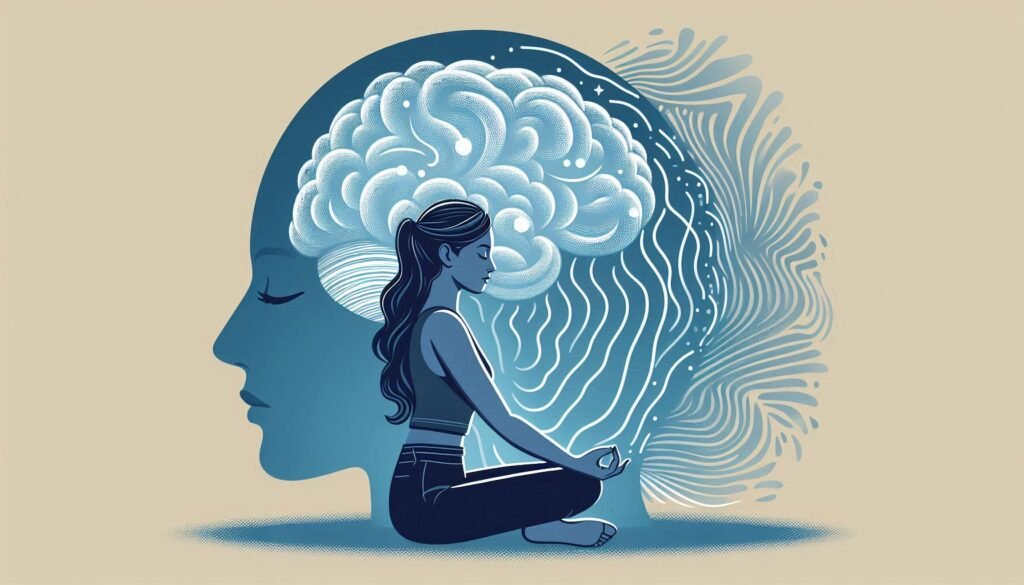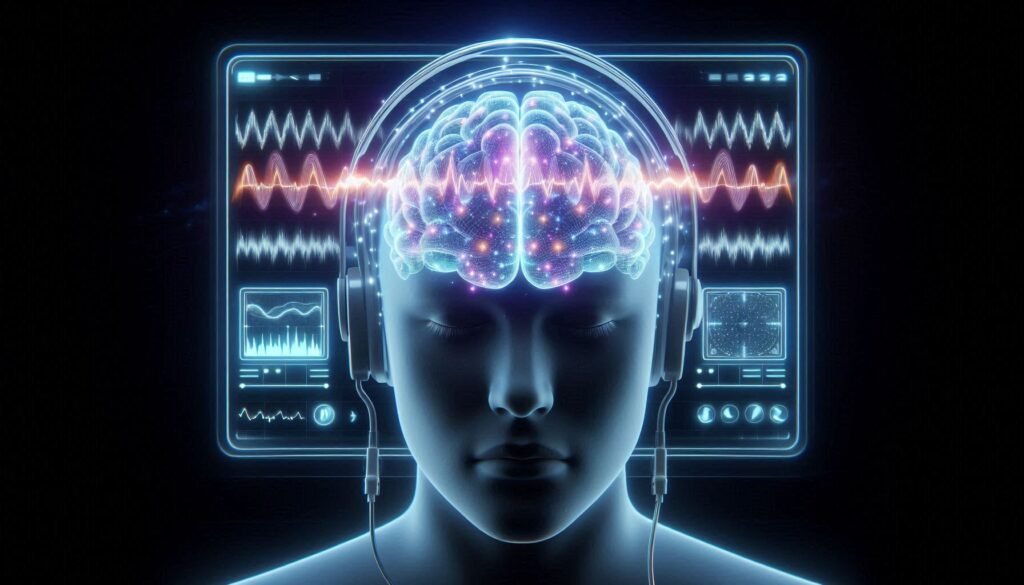Concussions are a serious concern in sports and everyday life, affecting countless individuals each year. While physical recovery is often the focus, mental well-being plays an equally crucial role in rehabilitation. One key aspect that can significantly influence this journey is stress management. The impact of stress on concussion recovery cannot be overstated—it can hinder healing and prolong symptoms.
Understanding how to effectively manage stress can empower patients as they navigate their path to recovery. By integrating various techniques into their routine, individuals can enhance their resilience and improve overall outcomes. This blog will explore the intricate relationship between stress and concussion rehabilitation while offering practical strategies for managing stress during this critical period. Whether you’re a patient or a caregiver, discovering these insights could change the way you approach recovery from a concussion for the better.

Understanding the Relationship Between Stress and Concussion Recovery
Stress is a common response to injury, and concussions are no exception. When someone experiences a concussion, the body enters a heightened state of alertness. This physiological reaction can be beneficial initially but becomes problematic if it persists throughout recovery.
Elevated stress levels can exacerbate symptoms such as headaches, dizziness, and fatigue. The brain’s healing process may slow down when stress hormones like cortisol flood the system. Consequently, individuals might find themselves trapped in a cycle where cognitive and emotional challenges intensify their physical discomfort.
Moreover, psychological factors often play a significant role in recovery timelines. Anxiety about returning to normal activities or fear of re-injury can hinder motivation and complicate rehabilitation efforts. Understanding this relationship is crucial for both patients and healthcare providers in creating effective treatment plans.
By addressing stress early on during concussion care, patients may experience an improved quality of life while expediting their recovery journey. Integrating stress management techniques alongside traditional therapies paves the way for holistic healing.
Physiological Effects of Stress on the Concussed Brain
Stress has a profound physiological impact on the concussed brain. When a person experiences stress, the body releases cortisol and other hormones. These substances can exacerbate inflammation in the brain, which is already compromised due to a concussion.
Elevated levels of cortisol can disrupt neurotransmitter function. This disruption may lead to mood changes, anxiety, and cognitive challenges for those recovering from head injuries. The delicate balance of chemicals that support healthy brain function becomes precarious during this time.
Moreover, stress can contribute to impaired blood flow in the brain. Reduced circulation hampers essential healing processes and prolongs recovery duration. Without adequate blood supply, nutrition delivery to damaged areas slows down significantly.
Chronic stress places additional strain on an already vulnerable nervous system. This can heighten sensitivity to light or sound—a common symptom among concussion patients—and impede their ability to cope with everyday stimuli effectively.
Mindfulness-Based Stress Reduction Techniques for Concussion Patients
Mindfulness-Based Stress Reduction (MBSR) is a powerful approach for concussion patients seeking relief from stress. MBSR combines mindfulness meditation and yoga to enhance self-awareness and manage anxiety. This practice allows individuals to focus on the present moment, which can be incredibly beneficial in mitigating post-concussion symptoms.
One effective technique within MBSR is mindful breathing. By concentrating on their breath, patients can create a calming effect that reduces tension and fosters relaxation. Simple exercises like deep breathing or counting breaths help ground individuals when overwhelming thoughts arise.
Body scan meditations are another vital component of MBSR. This technique encourages participants to mentally check in with each part of their body, promoting awareness and reducing discomfort associated with concussions. Patients learn how to release physical tension through this focused attention.
Gentle yoga practices incorporated into MBSR promote movement while fostering mental clarity. These sessions allow concussion patients to regain control over their bodies while cultivating serene mindfulness throughout their recovery journey.
Progressive Muscle Relaxation in Managing Post-Concussion Stress
Progressive Muscle Relaxation (PMR) is a powerful technique for managing stress, especially in those recovering from a concussion. It involves systematically tensing and then relaxing different muscle groups throughout the body. This practice encourages patients to focus on physical sensations, helping to release built-up tension.
For individuals dealing with post-concussion symptoms, PMR can provide immediate relief. The process typically starts at the toes and progresses up to the head or vice versa. By concentrating on each muscle group, patients become more aware of their bodies and learn how to distinguish between tension and relaxation.
Research indicates that PMR may reduce anxiety levels, which can be particularly beneficial during recovery when emotional well-being often fluctuates. Implementing this technique regularly can foster a sense of control over one’s body and mind during what may feel like an unpredictable healing journey.
Integrating PMR into daily routines is simple; it requires minimal time investment yet offers substantial benefits in terms of stress reduction and overall comfort as recovery continues.
Cognitive Restructuring: Addressing Stress-Inducing Thought Patterns
Cognitive restructuring is a powerful tool for managing stress, especially during concussion rehabilitation. This technique helps individuals identify and challenge negative thought patterns that exacerbate their stress levels. By recognizing these thoughts, patients can gain clarity and control over their emotional responses.
Many concussion survivors experience anxiety about their recovery process. They may worry about returning to work or sports too soon. Such concerns can lead to a cycle of rumination, increasing stress and impeding healing. Cognitive restructuring encourages patients to question the validity of these fears.
By reframing negative thoughts into more positive or realistic ones, individuals can shift their mindset from one of helplessness to empowerment. For instance, instead of thinking “I’ll never recover,” they might adopt the perspective: “Every day I am making progress.”
Practicing this method regularly not only reduces immediate stress but also promotes long-term resilience in facing challenges throughout recovery. The ability to manage one’s thoughts plays a crucial role in achieving overall well-being post-concussion.
The Role of Exercise in Stress Management Post-Concussion
Exercise plays a vital role in stress management following a concussion. Engaging in light physical activity can help stimulate the release of endorphins, which are natural mood lifters. These chemicals also reduce feelings of anxiety and depression, providing relief during the recovery process.
Gentle exercises such as walking or stretching can enhance blood flow to the brain. Improved circulation promotes healing by delivering essential nutrients and oxygen to injured areas. This can be especially beneficial for someone recovering from a concussion, where optimal brain health is crucial.
Moreover, establishing an exercise routine contributes to structure in daily life. This sense of normalcy helps reduce stress levels that may arise from uncertainty about one’s condition or future activities.
It’s important for individuals post-concussion to listen to their bodies and progress at their own pace. Consulting with healthcare professionals ensures that any exercise regimen remains safe and effective throughout the rehabilitation journey.
Sleep Hygiene and Its Impact on Stress Levels During Recovery
Sleep hygiene plays a crucial role in stress management, especially during concussion recovery. Quality sleep is essential for brain healing and overall well-being. When the body is under stress, it often struggles to enter restorative sleep cycles. This can exacerbate symptoms like headaches and fatigue.
Establishing a consistent bedtime routine helps signal to your body that it’s time to wind down. Avoiding screens before bed can reduce overstimulation and promote better relaxation. Creating a comfortable sleep environment, free from noise and distractions, also contributes significantly to improved rest.
Mindfulness practices before sleep can further enhance its quality by calming racing thoughts. Techniques such as deep breathing or gentle stretching help ease tension accumulated throughout the day.
Moreover, poor sleep increases cortisol levels—the body’s primary stress hormone—thereby complicating recovery efforts. By prioritizing sound sleep habits, individuals not only improve their mental clarity but also foster resilience against stressors encountered during rehabilitation.
Nutrition and Supplementation for Stress Reduction
Proper nutrition plays a crucial role in managing stress, particularly during concussion rehabilitation. Foods rich in antioxidants, vitamins, and minerals can help reduce oxidative stress on the brain. Incorporating fruits like berries and vegetables such as spinach can provide essential nutrients that support recovery.
Omega-3 fatty acids are vital for brain health and can be found in fish like salmon or walnuts. These healthy fats have been shown to lower inflammation and may aid cognitive function, which is often compromised after a concussion.
Additionally, magnesium is known for its calming properties. It’s abundant in foods such as almonds, seeds, and leafy greens. A diet high in magnesium may help alleviate anxiety levels associated with post-concussion symptoms.
Some individuals might consider supplementation to fill nutritional gaps. Herbal supplements like ashwagandha or rhodiola rosea are believed to combat stress effectively; however, it’s essential to consult a healthcare provider before introducing any new supplements into your routine.
Time Management and Prioritization Skills for Reducing Stress
Time management is a crucial skill for anyone recovering from a concussion. When your mind and body are healing, effective organization can significantly reduce stress levels. By prioritizing tasks, individuals can focus on what truly matters in their recovery journey.
Creating a daily schedule helps establish routine. Allocate specific times for rest, therapy exercises, and light activities. This structure not only provides clarity but also prevents overwhelming feelings that often accompany disorganization.
Breaking tasks into smaller steps can make them seem less daunting. Instead of aiming to complete everything at once, focus on accomplishing one thing at a time. Celebrate each small victory; it fosters motivation while easing the pressure of larger goals.
Using tools like planners or digital apps enhances accountability and tracking progress. Regularly reviewing priorities allows adjustments as needed without feeling chaotic or rushed—a key aspect of managing stress during concussion rehabilitation.
Integrating Stress Management into Comprehensive Concussion Care
Integrating stress management into comprehensive concussion care is essential for optimizing recovery. Stress can exacerbate symptoms and prolong rehabilitation, making it vital to address it holistically alongside physical treatment. Healthcare providers should consider a multidisciplinary approach that includes mental health professionals, physical therapists, and nutritionists.
Effective communication between all parties involved in the patient’s care ensures a tailored plan that addresses both the immediate effects of concussions and ongoing stressors. Regular assessments can help identify areas needing adjustment as patients progress through their recovery journey.
Encouraging open dialogue about stress-related challenges fosters an environment where patients feel supported. This may include discussing coping strategies or mindfulness practices with caregivers during appointments.
Patients should also be empowered to take ownership of their well-being by incorporating self-care routines into daily life. Simple actions like scheduling breaks or practicing relaxation techniques can significantly impact overall recovery time.
By viewing concussion rehabilitation through the lens of stress management, healthcare providers can facilitate not just healing but also resilience in their patients, ultimately leading to better long-term outcomes.


